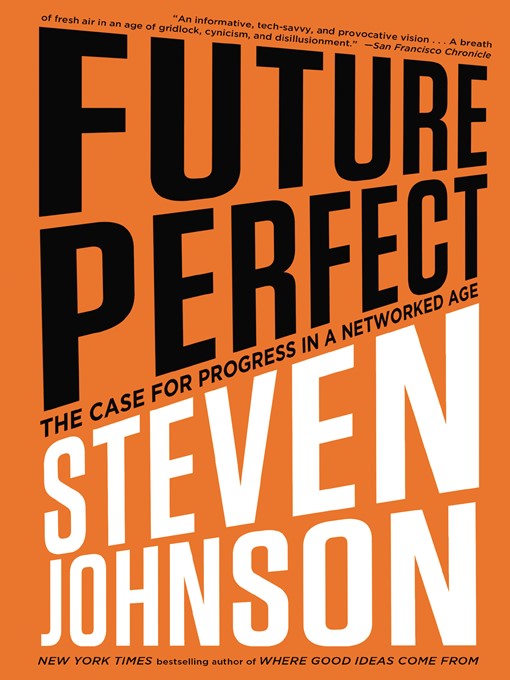
Future Perfect
The Case for Progress in a Networked Age
کتاب های مرتبط
- اطلاعات
- نقد و بررسی
- دیدگاه کاربران
نقد و بررسی

July 23, 2012
From the drop in the crime rate to the increase in airline safety, the media tends often to focus its attention on large areas of social progress rather than on incremental progress in various areas of social and political change. As journalist Johnson points out in this fascinating and compelling book, as the character of our society changes and embraces social networking to a greater degree, the ways that we foster and measure progress are beginning to change dramatically. For example, the progress in reducing teen smoking didn’t arise out of larger economic, market, or political forces; the decline in teen smoking came from doctors, regulators, parents, and peers sharing vital information about the health risks of smoking. In the future, progress will not arise primarily out of government directives or policies but out of peer networks. A peer network builds tools that lets a network of neighbors identify problems or unmet needs in a community, while other networks propose and fund solutions to those problems. The decision-making process governing the spending of funds would be less hierarchical, and the task of identifying and solving community problems would be pushed out to the edges of the network, away from the central planners. Johnson points to Wikipedia as a prime example of a successful peer-to-peer network, for it has built itself progressively into a network of information that the community carefully monitors and administers. Stimulating and challenging, Johnson’s thought-provoking ideas steer us steadily into the future.

August 15, 2012
Forceful argument for a new politics modeled on the structure of the Internet. As the title suggests, bestselling science writer Johnson (Where Good Ideas Come From, 2010, etc.) is a proud optimist. He believes that most problems facing us are soluble and only becoming more so, thanks to new patterns of social relations that increasingly mirror the organization of the Internet. Johnson coins the term "peer progressive" to describe an outlook that favors building the kind of society where power is distributed more or less equally among a self-regulated network of peers, who are free to contribute to the greater good according to where their strengths lie. (Think Wikipedia writ large.) Borrowing from Frederick Von Hayek, Johnson views heavily centralized organization as the enemy of progress. He cites Hayek's critique of the star-shaped rail system of 19th-century France as an example of raw power put to poor social use; on the other hand, Prussia's organic weblike system enabled it to efficiently transport troops and materiel via rail, without fear of the bottlenecking that plagued the French system. But unlike Hayek, Johnson argues that capitalism is prone to its own failures (a prime example being its inability to produce cheap HIV/AIDS drugs), particularly when practiced by top-down, hierarchical corporations that are just as self-deluding and corruptible as centralized government. The greater part of this slim but idea-packed book looks at how, even as older institutions with concentrated power are failing us, peer-to-peer networks are already having positive impacts on local politics, activism, journalism, education, elections, businesses and even the arts. Johnson praises new approaches to problem-solving like Kickstarter, which enables artists to connect with patrons willing to contribute small amounts en masse; Whole Foods and employee-owned businesses that spread power and rewards throughout the organization; and New York City's much-imitated 311 telephone service, a virtual two-way problem-solving system between citizens and public officials. A thought-provoking, hope-inspiring manifesto.
COPYRIGHT(2012) Kirkus Reviews, ALL RIGHTS RESERVED.

April 1, 2012
Getting connected will be good for us--but it's surely going to be different. That's the argument from Johnson, Time cover boy, TED (technology, entertainment, and design) talker, and author of the best-selling Where Good Ideas Come From. If you want to stay updated.
Copyright 2012 Library Journal, LLC Used with permission.

























دیدگاه کاربران